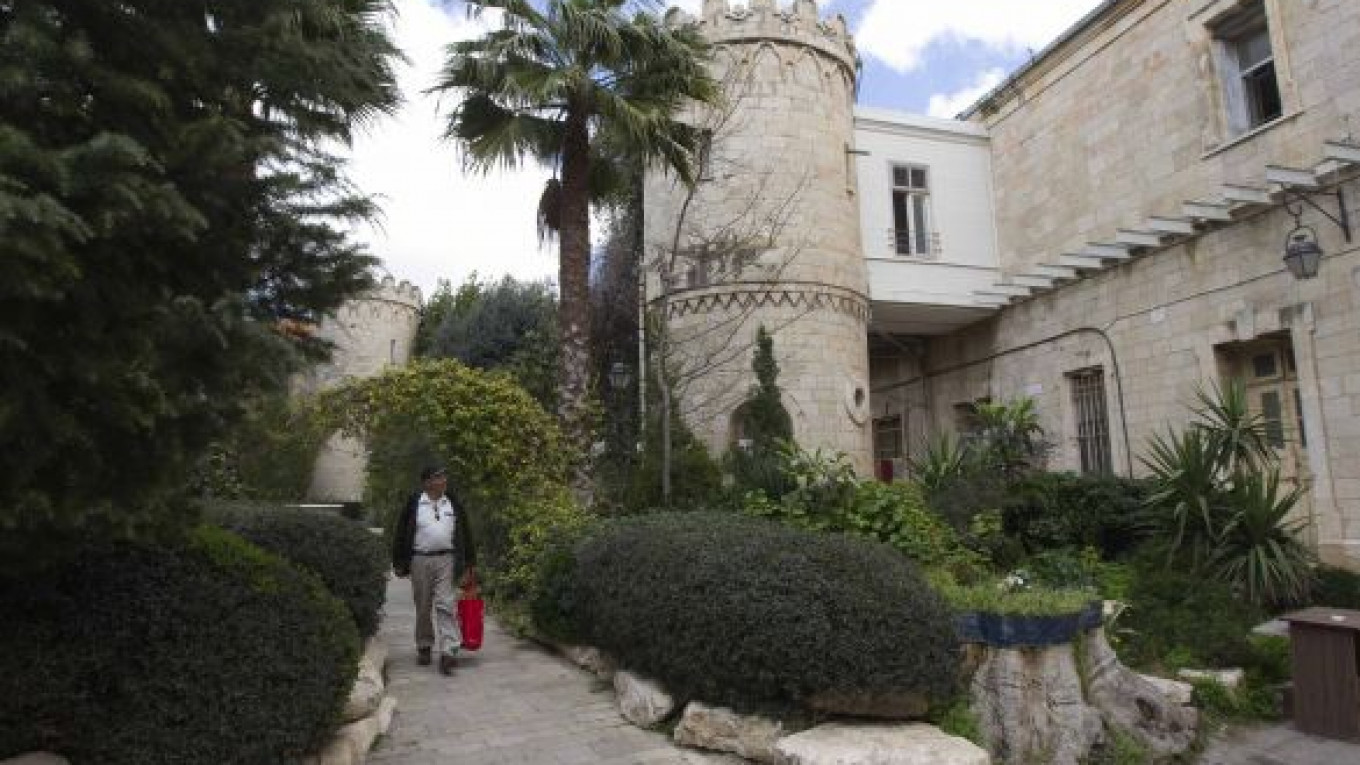JERUSALEM – Israel is handing back ownership of a tsarist-era landmark in the heart of Jerusalem to Russia, defusing a long-simmering dispute between the two countries right before Israel's leader visits Moscow.
Prime Minister Benjamin Netanyahu's office has not disclosed the agenda for Thursday's visit, but he is expected to urge Moscow not to sell sophisticated missiles to Syria and to support efforts to keep Iran's nuclear ambitions in check.
The return of ownership of the property known as Sergei's Courtyard, approved in 2008, appeared to be a goodwill gesture ahead of the visit.
The hewn stone building, built in 1890 to accommodate Russian pilgrims to the Holy Land, is a prominent edifice on the Jerusalem landscape with its soaring turret and lush garden. About a dozen workers were moving crates out of the building this week and loading them into trucks.
"Israel is vacating Sergei's Courtyard in accordance with the understandings reached between Israel and the Russian Federation," an Israeli official said, speaking on condition of anonymity because he was not authorized to discuss the matter with the media.
The site was named for Grand Duke Sergei Alexandrovich, a son of Tsar Alexander III, and is part of a complex known as the Russian Compound. Israel bought most of it from the Soviet Union in the early 1960s, paying with oranges because it didn't have hard currency.
Israel seized control of it after the Soviet Union severed ties with the Jewish state following the 1967 Mideast war. The two countries restored ties in 1991, and negotiations to return the courtyard ownership to Russia began in the 1990s.
In 2005, then-Prime Minister Ariel Sharon promised former President Vladimir Putin that the land would be returned. Three years later, the Israeli Cabinet formally agreed to hand over the courtyard, which now houses offices of Israel's Agriculture Ministry and the Society for the Protection of Nature in Israel.
The property has generated controversy in Israel, with hard-line groups opposing any transfer of control in the holy city. They see it as a worrisome precedent, given Palestinian claims to the city's eastern sector, which Israel captured in the 1967 war.
The nationalistic Legal Forum for the Land of Israel unsuccessfully appealed the 2008 Cabinet decision, calling it a "breach of Israeli sovereignty."
Russian officials were not immediately available for comment, but Moscow has said in the past that the building would be used as a Russian cultural center to "promote bilateral relations" between the two countries.
A Message from The Moscow Times:
Dear readers,
We are facing unprecedented challenges. Russia's Prosecutor General's Office has designated The Moscow Times as an "undesirable" organization, criminalizing our work and putting our staff at risk of prosecution. This follows our earlier unjust labeling as a "foreign agent."
These actions are direct attempts to silence independent journalism in Russia. The authorities claim our work "discredits the decisions of the Russian leadership." We see things differently: we strive to provide accurate, unbiased reporting on Russia.
We, the journalists of The Moscow Times, refuse to be silenced. But to continue our work, we need your help.
Your support, no matter how small, makes a world of difference. If you can, please support us monthly starting from just $2. It's quick to set up, and every contribution makes a significant impact.
By supporting The Moscow Times, you're defending open, independent journalism in the face of repression. Thank you for standing with us.
Remind me later.






